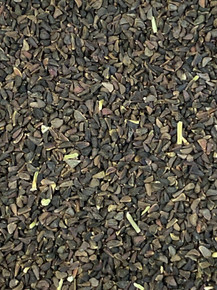harmal Peganum Harmala - Esfand Wild Rue - Harmel Aspand - 50gm
Harmal (Peganum harmala), also known as Syrian rue, is a medicinal plant used in traditional medicine for centuries. It contains active compounds like harmaline, harmine, and harmalol, which have various potential benefits. Here are some of the key benefits associated with Peganum harmala:
1. Antimicrobial Properties
- Harmal has strong antimicrobial effects against a range of bacteria, fungi, and viruses. It has been used traditionally to treat infections and promote wound healing.
2. Antidepressant Effects
- The alkaloids found in Peganum harmala, particularly harmine and harmaline, have been shown to possess MAO-A inhibitory activity, which can help increase serotonin levels and provide antidepressant effects.
3. Anti-inflammatory Properties
- Studies suggest that extracts from Peganum harmala possess anti-inflammatory effects, which may help in managing conditions characterized by inflammation.
4. Antioxidant Effects
- Harmal has potent antioxidant properties, which help protect cells from oxidative stress and free radical damage, potentially reducing the risk of chronic diseases.
5. Anticancer Potential
- Preliminary research indicates that compounds found in Peganum harmala may have anti-cancer properties. These compounds have been shown to inhibit the proliferation of certain cancer cells, although more research is needed.
6. Antiparasitic Properties
- Harmal has been traditionally used to treat parasitic infections, such as those caused by helminths (worms). Its seeds contain compounds that are toxic to parasites.
7. Pain Relief and Analgesic Effects
- Harmal is sometimes used for pain relief due to its analgesic properties. It has been traditionally used for headaches, toothaches, and joint pain.
8. Potential for Neuroprotective Effects
- Some studies have suggested that harmine and harmaline may have neuroprotective effects, potentially beneficial in neurodegenerative disorders like Parkinson's disease.
9. Traditional Uses in Rituals and Spiritual Practices
- In many cultures, especially in the Middle East and Central Asia, harmal seeds are burned for their aromatic smoke, believed to ward off the "evil eye" and protect against negative energies.
10. Use in Fertility and Reproductive Health
- In some traditional medicine systems, Peganum harmala has been used to treat reproductive health issues. However, it should be used cautiously as it can also have abortifacient effects.
Precautions and Side Effects
- Toxicity: High doses of Peganum harmala can be toxic and cause severe side effects such as hallucinations, nausea, vomiting, and tremors.
- Pregnancy: Harmal is considered unsafe during pregnancy due to its potential to induce uterine contractions.
- Interactions: It may interact with medications, especially antidepressants, due to its MAO-inhibitory activity.
Always consult with a healthcare professional before using Peganum harmala for medicinal purposes, especially if you have existing health conditions or are on medication.









